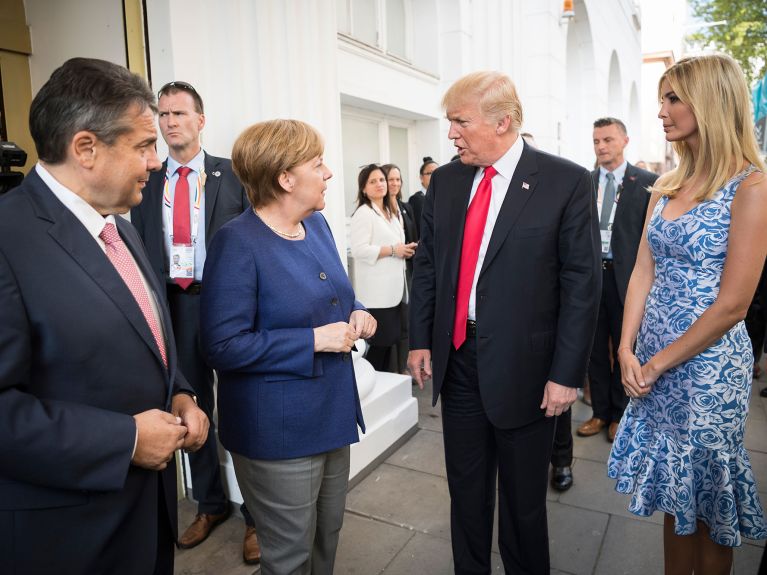Realism, not sentimentality
Trump-bashing or broaden our view? We can’t act jointly with Trump, yet we can’t act alone without the US.

When people in Germany talk about trans-Atlantic relations, the conversation soon turns to Donald Trump. He’s regarded as the source of all conflict between the United States and Europe, especially with Germany.
Yet Trump is not to blame for everything. And he’s not always wrong, for instance when he criticizes China. We won’t solve any problems with the US – whether trade issues, dealing with Iran or Nord Stream 2 – through Trump-bashing and finger-pointing. We must broaden our view and consider the wider geopolitical context.
A shift in the axes of global power
What we’re currently observing has far less to do with Trump than we would like to believe and far more with a dramatic transformation in global politics. We’re witnessing a shift in the axes of global power, and with it a change in the world’s political and strategic orientation. The Atlantic is no longer the center of gravity for global economic, political and military power. Supply chains have very quickly shifted to the Pacific.
The US has for years been in a state of imperial overstretch. It’s stuck in a strategic dilemma. While it wants to (and should) be the guarantor of a liberal world order, it also wants to be the world’s leading economy. Being both overstrains the US, notably in light of China’s dynamism, size and power.
The US has always had partners, friends and allies
This is why Trump’s predecessor, President Barack Obama, sought to concentrate his country’s strength on competing with China and to withdraw from certain other roles in the world. In this sense, Trump’s foreign policy in many ways represents the continuation of a US foreign policy that started well before his time.
That said, in contrast to all previous presidents, Trump is unable to discern what it is that has made the US so successful over the past 70 years and what distinguishes the country from revisionist, autocratic regimes such as those in Russia or China. Unlike all previous superpowers, the US has always had partners, friends and allies. Its ability to maintain a tight network of partners has always been one of the most important factors in reinforcing its influence.
Europe is in danger of fading into global insignificance
Trump has dispensed with this alliance-based policy. Europe, the most important ally of the US over the past 70 years, often seems to him to be a “conspirator” against US interests. This view of the world is a far greater cause for concern than any differences on specific issues such as trade disputes, the Iran deal or the planned Nord Stream 2 gas pipeline. History has shown that the trans-Atlantic partnership can overcome these kinds of differences of opinion, as well as far more serious ones. One need only to think back to the early 1980s and the debate on the stationing of medium-range nuclear missiles in Europe.
Where do we Germans and Europeans stand in this situation? It must be clearly stated that if we fail to quickly get a grip on this new reality, the future world order will reflect a G-2 world, dominated by the twin poles of the US and China. Europeans are like the last geopolitical vegetarians in a world full of carnivores; we are in danger of fading into global insignificance.
Read the whole text on The German Times website
Sigmar Gabriel is an SPD member of the Bundestag. From 2013 to 2017, he was Germany’s federal minister of economic affairs. He then served as foreign minister until March 2018. This text is an excerpt of a speech on the future of trans-Atlantic relations at an Atlantik-Brücke event.